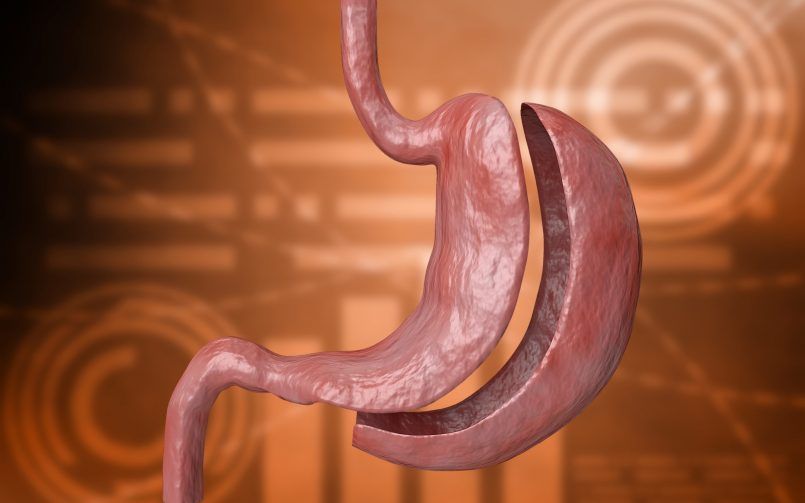
Bariatric surgery as a prevention of medical problems
Perhaps all of us will (with rare exceptions) go through smaller or larger weight gains during our adult lives. However, an increasing number of people are overweight and they are struggling to get rid of the extra kilograms. And obesity, already associated with health complications (diabetes, hypertension, etc.), possesses new risks. According to recent studies, this condition is one of the most risky factors for the serious course of Covid-19.
Bariatrics, i.e. surgical solution, will become an emergency brake for the obese in the future. Yes, many chronic diseases are associated with obesity. Overweight people are still stigmatised in society and repeated failures in achieving weight loss do not contribute to their mental well-being. Stress also weakens immunity system and increases susceptibility to negative external influences, including viruses such as SARS-CoV-2.
In the Czech Republic, we are able to arrange specialised procedures at one of the leading European bariatric centres. The clinic specialises in performing minimally invasive methods – laparoscopically, optionally also using the ultra-modern Da Vinci robotic system. The American manufacturer of this ultra-modern technology officially recommends our surgeons Dr Jaroslav Tvaruzek and Dr Igor Simonik.
What bariatric procedures are we talking about?
In both cases, it is a surgical reduction of the stomach in order to reduce the volume of this organ and the associated hunger in severely and long-term obese patients.
Gastric sleeve (or sleeve gastrectomy) is the surgical removal of the greater curvature, while the stomach acquires a tubular shape. Hence the analogy to the sleeve. The resulting volume after reduction is usually 80-180 ml, which leads to a significant reduction in the amount of food consumed. In addition, the area producing the hunger hormone Ghrelin is removed. This eliminates the influence hormone on the central nervous system and thus reduces the feeling of hunger. There is nothing to worry about – the digestive functions of the stomach stay fully preserved. This procedure leaves the key parts, such as pylorus, or the LES valve (which prevents “the reflux” of digested food) untouched.
Gastric bypass is a step more complex procedure. The surgeon creates a smaller stomach pouch which is then attached to the the small intestine. This shortens the path of food through the digestive tract, thus reduces the amount of calories the body can absorb. The desired weight loss process begins!
Bariatrics and its results
The numbers seem incredible, but they are real. During the first year after surgery, patients lose about 30-50 kilograms. And with a modified active lifestyle, they can lose even more. Most importantly – the weight loss is sustainable: no yo-yo effect! Patients who undergo bariatric surgeries agreed the procedure literally changed their lives for the better.
The length of hospital stay
The patient is hospitalised for 4-5 days (depending on the course of healing), the next day after the surgery can start walking. Proper post op diet during the convalescence time is crucial, of course. Only pure fluids and proteins are administered in the first days after the surgery. The transition to solid food is not immediate – a liquid or mushy diet should prevail in the next 3-4 weeks.
The options in food selection and preparation are ample today, and an experienced surgeon, in cooperation with a dietician, will advise you during this period. In addition, your diet should include appropriate vitamin supplements, which will support the regeneration of your digestive tract.
Are you or someone close to you fighting obesity? Do you want to avoid health risks associated to it? The only way is to take care of yourself and maintain your own good physical and psychical condition.








